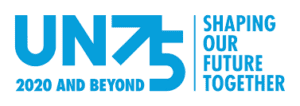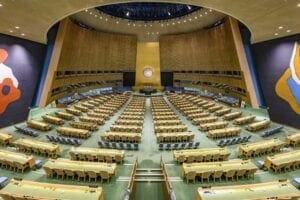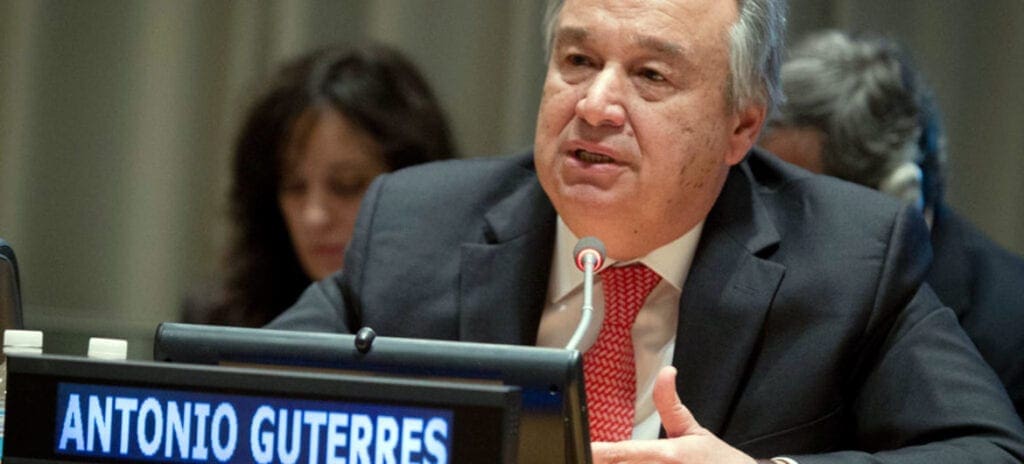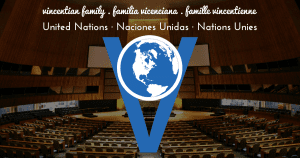Although the United Nation’s General Assembly (GA) opens in New York on Tuesday, the over two-week, high-level event seems far overshadowed by reflection upon one day—The UN’s 75th Anniversary. The UN’s diamond anniversary, September 21, has given people globally pause to consider needed reforms at the United Nations; changes which would make it more effective.
 No doubt the UN has done great good in its 75 years. An example would be the efforts of various UN agencies to provide support following the devastating early August explosions in Beirut. Others include humanitarian aid provided in times of floods, famine, and conflict; awareness-raising about climate issues; assistance given to migrants and refugees; the provision of aid and medical supplies/care in the midst of Ebola and Covid-19 situations; and more. When in the Cook Islands a few years back, I witnessed the wonderful work of a UNESCO representative in supporting educational services. No doubt her efforts are duplicated in many locations world-wide.
No doubt the UN has done great good in its 75 years. An example would be the efforts of various UN agencies to provide support following the devastating early August explosions in Beirut. Others include humanitarian aid provided in times of floods, famine, and conflict; awareness-raising about climate issues; assistance given to migrants and refugees; the provision of aid and medical supplies/care in the midst of Ebola and Covid-19 situations; and more. When in the Cook Islands a few years back, I witnessed the wonderful work of a UNESCO representative in supporting educational services. No doubt her efforts are duplicated in many locations world-wide.
But prominent in people’s minds are questions such as, “How can the Security Council be more effective?” (It was distressing when the Security Council took 100 days to finally support Secretary General Antonio Guterres’ call for a global cease fire at the beginning of the COVID-19 pandemic). “How can the UN have greater impact at the grass roots level? How can countries be held more accountable in their commitments to treaties, compacts, and resolutions? How can countries set aside power struggles and more vigorously work for the common good? How can human rights be better protected?”
GENERAL ASSEMBLY EVENTS

General Assembly Hall
The General Assembly takes place September 15 through 30. (It will consist this year primarily of video-taped messages by world leaders). The UN’s 75th Anniversary takes place in the midst of the General Assembly. The theme of the September 21st anniversary is: “The Future We Want, the UN We Need: Reaffirming our Collective Commitment to Multilateralism.”
Other key events connected with the General Assembly include Climate Week, September 21-27; a Biodiversity Summit on September 30; celebration of the 25th Anniversary of the Fourth World Conference on Women through a dialogue set for October 1; and a high-level plenary meeting to commemorate and promote the International Day for the Total Elimination of Nuclear Weapons on Friday, 2 October 2020.
UN CONDUCTED GLOBAL SURVEYS
To prepare for its 75th anniversary celebration, the UN has conducted global surveys and conversations throughout the year to receive people’s opinions about key concerns and solutions to world problems. Secretary General Antonio Guterres will speak, and the grass roots survey results are expected to be released, during an anniversary event on Monday, September 21.
SECRETARY GENERAL WANTS ACTION ON GLOBAL THREATS
Guterres does not seem to be looking for an anniversary celebration involving cutting cake and “hip, hip, hoorays.” He is more concerned about urgent action to address contemporary global threats which he framed in January as the “four horsemen of the apocalypse.” The four horsemen are mentioned by the Apostle, John, in the Book of Revelation. They represent conquest, the violence of warfare, famine, and widespread death. Guterres in January identified their contemporary equivalents as climate change, mistrust, global tensions, and sinister technologies. Eight months after Guterres’ named them, those four horsemen are joined by others, including a pandemic, the health and economic devastation it has caused, growing poverty, as well as blatant inequalities.

FAITH BASED VISION FOR UN AT 75
Faith based organizations (FBOs) bring a unique view to the UN. They typically know what’s happening on the ground. They address persons “left behind” and insist on preserving their dignity. In many cases, they know effective solutions. A group called Religious at the UN (RUN) recently prepared a faith based vision for the UN at 75. (The Company of the Daughters of Charity, the Sisters of Charity Federation, and the Congregation of the Mission belong to RUN).
RUN, in its vision, states that “the UN has done much of its best and most important work on the ground when in dialogue and intentional collaboration with FBOs and members of our vast civil society networks. FBO input, guided by principles of subsidiarity and a preferential option for the poor (among many others), has frequently been instrumental in ensuring that the world’s most marginalized communities are included in the design, delivery, and fruits of UN efforts on the ground.”
In order to work towards a more relevant and effective United Nations, RUN calls for four things:
- Making the role of civil society, including FBOs, more relevant, central and meaningful in UN processes. RUN offers a number of suggestions related to greater engagement of civil society and FBOs at the UN, including a more meaningful practice of collaboration with FBOs to engage individuals with lived experience of thematic issues being examined by UN Commissions; ensuring NGOs and member states listen and engage with each other to a greater extent; encouraging all national UN offices to invite input from FBOs within the country and offer themselves as communication hubs (so that people living in remote areas can participate in international-level processes); creating a major group for FBOs which would then afford FBOs a standing invitation to participate in UN fora; providing more diverse Member State delegations to UN Commissions and meetings; and recognizing NGO working groups and committees in developing outcome documents and in the planning and work of UN agencies with whom they share a focus area.
- Security Council reform: “The UNSC,” RUN says, “requires a 2020 vision of global security that integrates a broad swath of the interrelated social, economic, and environmental factors of which it is comprised.” Suggested reforms include an end to the Security Council veto, the abolishment of permanent membership, equitable representation of regions on the Council, greater gender balance on the Council, a seat for youth and civil society representatives, and prohibition of members’ service on the Council when their countries are in arrears in funding to the UN, involved in making war, and when they are involved in the fabrication of war materials and armaments for sale to countries in conflict. It also calls for protocols for more robust responses when violence is committed against or in the name of faith based communities.
- Develop a UN body dedicated to the coordination of both the internal (within the UN) and national-level reviews of how Member States are implementing treaties, declarations, compacts, and resolutions. “In the spirit of the 2005 World Summit Outcome, the UN must communicate in deed to all peoples that the words spoken in the halls of New York, Geneva, Vienna, Nairobi, etc. are more than rhetoric, that the expert advice exchanged within those halls is worth acting upon,” RUN states. RUN’s suggestions include a robust channel for input from civil society, including members of affected populations, in the planning and implementation of all the body’s monitoring and evaluation processes; establishing a process for reviewing the UN System’s human rights record; establishing a process for reviewing the UN’s delivery on the 17 Sustainable Development Goals; codifying the principle of gender equality in UN protocols; and mainstreaming exemplary environmental sustainability policies and practices. RUN also calls for undertaking a review of the UN Charter, policies, processes and procedures to identify embedded racial or gender bias, ensuring changes are made to address any biases found, and integrating anti-racism and unconscious bias training for all UN staff and volunteers.
- Scale up technology capacity, affordability, and access and revise approaches to UN processes to allow remote participation to become a primary mode of operation. RUN urges the UN
“to make significant investment in technological capacities and infrastructure at its national and international offices that will facilitate the remote participation, especially of non-governmental stakeholders, in UN proceedings” and to allow remote participation to become one of the primary modes of input from both Member States and non-governmental stakeholders. Recommendations essentially call for closing the digital divide, ensuring technology diminishes gaps in representation, and providing time frames for negotiations and consultations, which would enable people in distant time zones to better provide input.
Various faith based organizations met on Tuesday on a webinar which involved member states and civil society. They discussed ways to make the United Nations truly “united.” In addition, a project called UN2020 has engaged civil society in many conversations regarding the UN at 75 over the past couple years. The Project in May issued a People’s Declaration and Plan for Global Action. It is accessible by clicking here.
Any significant changes require greater relationship building. Let’s hope and pray that greater dialogue among all United Nations leaders and stakeholders leads to effective change which benefits people experiencing marginalization of any kind.








Thank you Margaret. These are very well thought out suggestions. RUN did a very thorough job of highlighting major areas that should warrant focused attention.
Well done, Margaret. RUN has presented clearly and cogently what must be done. New times and new challenges demand new approaches. Hopefully there will be a groundswell of support for the proposed reforms.